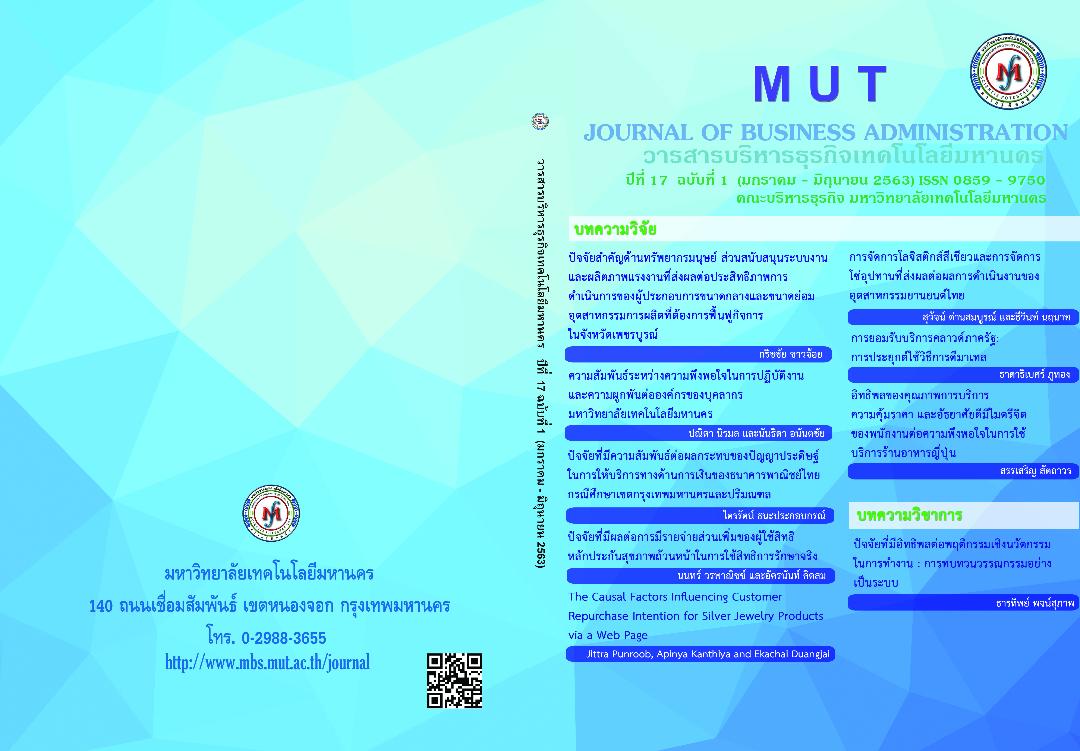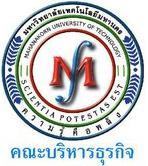Factors Affecting the Additional Payment of the Universal Health Care Users
Keywords:
The Universal Health Care System, Gold card, 30 baht, Additional payment, Additional expenseAbstract
This research aims to study the factors affecting the additional payment of the universal health insurance users and to analyze reasons and list of additional expenses. The data were collected from 500 participants who use the universal health insurance rights, dividing into two groups: 400 people with the additional payment and 100 people without the additional payment in the area of Phra Nakhon and Thonburi, one hospital each. A quantitative analysis of Logistic Regression is applied. For qualitative analysis, focus groups and depth interview are applied with 4 groups of participants: the elderly men group, elderly women group, male working group, and female working group.
The results taken from the logistic regressions revealed that the urgency of treatment and chronic illness positively affected the additional payment. On the other hand, a factor of the quality of doctors, quality of medicines, medical supplies, and the overall quality of treatment affected the additional payment in the opposite direction. Corresponding with the results of the focus groups and depth interviews, which can be summarized that in the case of urgency in treatment or case of chronic illness or low quality of doctors, medicines and medical supplies, users have a chance to have the additional payments.
The results from the questionnaires showed a list of the additional payments. In case of the cost of drugs and medical supplies, the target samples said that 87.75% found themselves needing to pay this part. Another 78.25%, 75.50%, 44.00%, and 41.75% of the samplings had the additional payments for the cost of medical tools and equipment, other informal expenses (i.e. part-time clinical fees, accommodation fees, food and travel expenses), specific consultation fees, and the extra surgery expenses respectively. These results were confirmed by the focus groups and depth interviews findings i.e. the additional payments were the expenses regarding travel expenses, medicine and medical supplies, infant vaccination fees, X-ray fees, and accommodation fees.
The government should support additional budgets for medicine and medical supplies and medical tools and equipment expenses. An integrated strategy for all related parts should be formulated in order to change people's attitudes and health behaviors. The main focus is on the risky groups or on the early stage groups of patients with chronic illnesses. The government should allocate the per-head budgeting with a link to medical doctor quality, quality of medicine and medical supplies, and the overall quality of treatment. Also, the government should monitor the quality of emergency treatment and referral coordination for the beneficiaries.
Downloads
Published
Issue
Section
License
ข้อความ ข้อคิดเห็น ข้อมูล เนื้อหา รูปภาพ แผนภูมิ แผนผัง เป็นต้น ที่ปรากฏและแสดงในบทความต่างๆ ในวารสารบริหารธุรกิจเทคโนโลยีมหานคร ถือเป็นความรับผิดชอบโดยตรงของผู้เขียนบทความนั้นๆ มิใช่เป็นความรับผิดชอบใดๆ ของวารสารบริหารธุรกิจเทคโนโลยีมหานคร และมหาวิทยาลัยเทคโนโลยีมหานคร
บทความที่ตีพิมพ์ในวารสารบริหารธุรกิจเทคโนโลยีมหานคร ถือเป็นลิขสิทธิ์เฉพาะของคณะบริหารธุรกิจ มหาวิทยาลัยเทคโนโลยีมหานคร หากบุคคลหรือหน่วยงานใดต้องการนำทั้งหมดหรือส่วนใดส่วนหนึ่งไปเผยแพร่ต่อหรือเพื่อกระทำการใดๆ จะต้องได้รับการอนุญาตเป็นลายลักษณ์อักษรจากคณะบริหารธุรกิจ มหาวิทยาลัยเทคโนโลยีมหานครก่อนเท่านั้น


